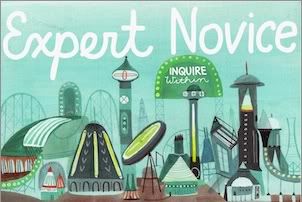
Why is it a better common ground? Because NBC executives don't want to hear that their old business models have to go out the window. Especially the business models where they make money. But they do understand a little something about supply and demand, and also about how large audiences=large audiences for advertisements. And those make advertisers happy. And if the advertisements are good, relevant, fun, and to the point? Consumers should be happy, too.
As I sat there tonight, eating free Thai food and thinking about copyright law, a couple things occurred to me:
- People could always make copies of books, even before Xerox machines. Even before the printing press! You know how? They copied them by hand. What we're talking about with the digitization is mostly an incredible simplification and streamlining of the process by which copies can be made. BitTorrent is not all that fundamentally different from recording a show on your VCR, as far as I can tell; it just lowers the barrier to entry and enables effortless, perfect copies. It's the effortlessness and the perfection that are new; not the urge to copy. People 50 years ago didn't have a deep moral sense of copyright—at least not any deeper than we do today. They were lazy, and copying was hard. Buying was easier. Today, we're still lazy, but there's one small difference: copying is easy. It's buying that's hard.
- I grew up thinking that media should be free...and that was before the Internet! Because, if you'll remember, the way that TV used to mainly work was through antennas and televisions that you could buy to access the signals that were already in the air, everywhere. The content was "free;" I paid for it by paying attention to the other messages that came along with it. A lot of the time I watched the advertisements, too— whether because of inertia or because of my consumer obsession, (which, as you'll remember, began rather early for me.) The thing is, the company who was advertising never would have known whether I stayed and watched the advertisement or left the room to get a snack of cheese cubes. They would have just trusted that the sheer numbers of people watching television, reported to them by Nielsen through "representative" sampling, would yield a certain quantity of potential consumers. The Internet offers incredible tools to track audiences, clicks, attention, and audience response; just look at Google AdWords and AdSense, and the value they provide to advertisers. (And even, sometimes, customers.) There's definitely a business model there. It's all about monetizing attention, and letting consumers pay for their content not with money, but with time. This is not new. But it's good to remember.
- Intentions matter, in the law. Copying a song for yourself means something different than copying it for a friend, or for all your anonymous Internet "friends" who snag pieces of copies of songs through BitTorrent and then reassemble them for listening pleasure. The guy from NBC tonight kept saying that we can use DRM to manage people's intentions, to keep "bad guys" from doing their bad things, while letting "good guys" get away with only a minor level of frustration. The thing is, copying a song for yourself looks pretty much the same as copying it for a friend, if you're the computer. I don't think DRM is the answer. We can't "digitally manage" people's rights without pretending that we can know their intentions from a string of 1's and 0's.
Until next time, in the valiant fight for the future of media!



No comments:
Post a Comment